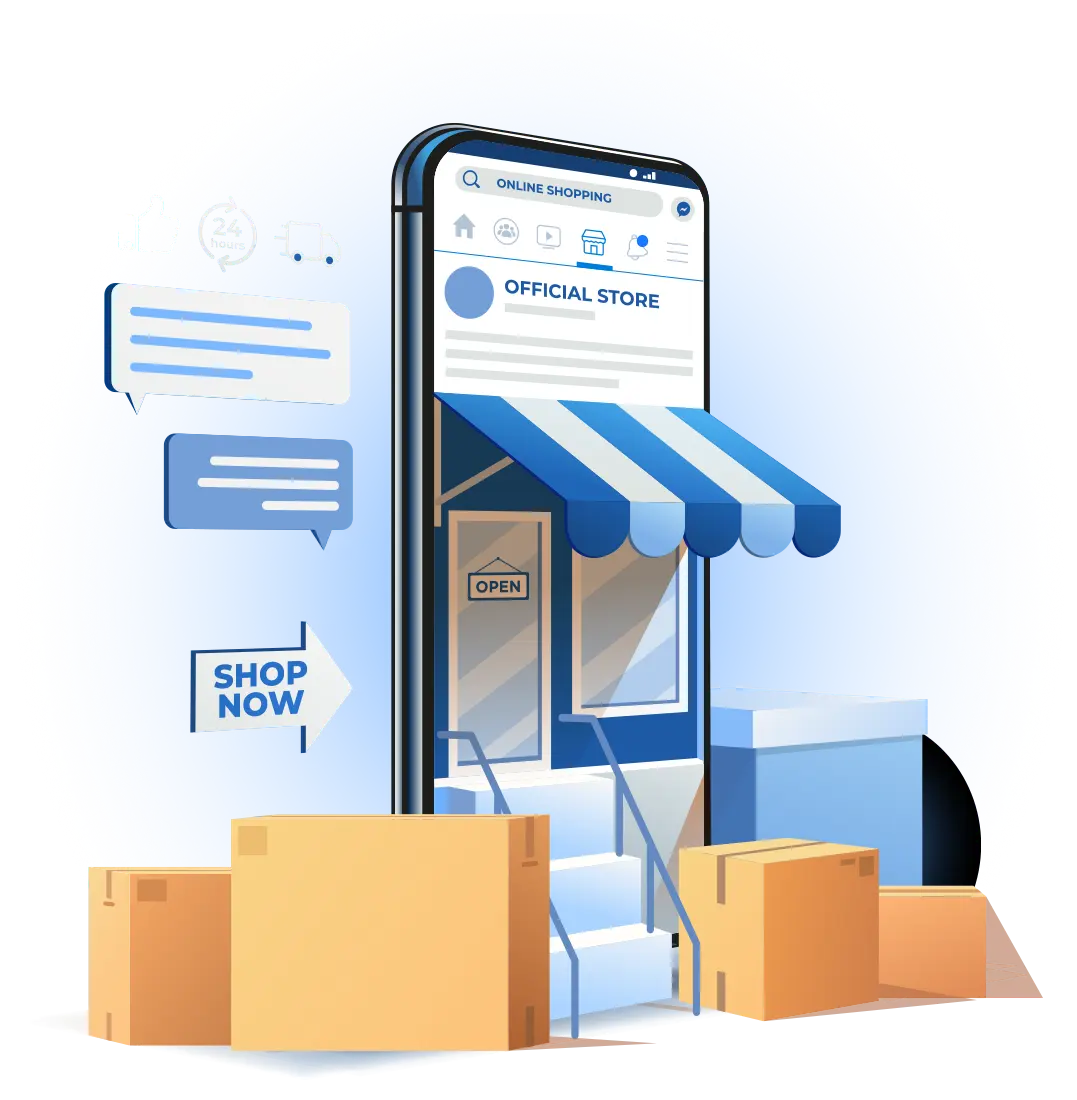 The past 12 months featured a flurry of activity in the eCommerce space, including mergers and acquisitions between major eCommerce solution providers, which has not only shifted the digital commerce landscape, it has also affected eCommerce customers – both enterprise businesses (those with $1.2 billion or more in sales) and small to mid-market companies. We’re here to give our take on the recent market activity, and provide input and predictions from industry experts on how these changes will have a ripple effect in the B2B marketplace.
The past 12 months featured a flurry of activity in the eCommerce space, including mergers and acquisitions between major eCommerce solution providers, which has not only shifted the digital commerce landscape, it has also affected eCommerce customers – both enterprise businesses (those with $1.2 billion or more in sales) and small to mid-market companies. We’re here to give our take on the recent market activity, and provide input and predictions from industry experts on how these changes will have a ripple effect in the B2B marketplace.
Three big happenings in 2018
The biggest shakeups in the eCommerce arena include an acquisition of a B2B software solution by a major CRM platform, a merger between an enterprise platform provider and mid-market provider, and a surprising exit out of the eCommerce game by a giant tech company. Here’s a breakdown of these big moves, and their significance to the marketplace:
- Salesforce acquired CloudCraze
Leading CRM platform provider, Salesforce, had some success with selling multiple clouds to both enterprise and mid-market companies, but with only a B2C cloud platform to offer, they were missing the B2B side of the business. Their March 2018 acquisition of CloudCraze gives them the opportunity to help fill that gap. Oddly enough, while CloudCraze has always run on the Salesforce platform, Demandware – Salesforce’s proprietary B2C solution – does not. Many have questioned why their own products don’t use their platform and how the company will integrate these disparate offerings
- Adobe bought Magento Commerce
In an attempt to become a player in the enterprise space, Magento has been slowly moving up market, and its May 2018 merger with Adobe will certainly help leverage that movement. Adobe hopes that Magento’s Commerce Cloud will enable better integration with the Adobe Experience Cloud to deliver a single platform that serves both B2B and B2C customers. In turn, Magento will likely benefit from Adobe’s industry-leading CMS. However, without a clear market focus, it’s unsure if Adobe will continue to service just the enterprise space, or if they will double-down and serve the mid-market space as well. Either way, integrating these two systems will prove a huge undertaking. And the high cost of ownership associated with implementing these platforms will likely turn away many small to mid-market customers.
- IBM just exited the eCommerce platform business
Probably the biggest shocker of the year was when IBM announced in late December that they were leaving the eCommerce business. They sold all their eCommerce assets to India-based HCL Technologies Ltd., a systems integrator, without so much of whisper of the impending sale. In fact, many IBM employees weren’t aware of the move until the formal press release went out. When the deal closes in mid 2019, IBM’s on-premise eCommerce platform, WebSphere, will officially fall under HCL’s ownership. With a number of major retailers currently using WebSphere – including Home Depot and Lowe’s – many are frustrated and concerned at IBM’s lack of communication about the sale, with good reason. While HCL has demonstrated their technology innovation work, they have not proven they can succeed in the eCommerce platform business. Everyone is staying tuned to watch how this platform handoff is going to pan out for its customers.
While it didn’t make our big three list, another notable shift in the eCommerce landscape over the last 12 months was SAP’s removal of the Hybris Commerce brand name – as well as most of the Hybris team. Carsten Thoma, SAP Hybris co-founder and former CEO, exited the organization in October of 2017 and other changes have since followed. What was once a leading name in B2B and retail eCommerce software for large-scale organizations, Hybris has all but disappeared from SAP’s vocabulary and has been replaced with SAP Commerce Cloud.
Observations and predictions
As these mergers, buyouts, and exits from the eCommerce space take place, they are reshaping and redefining the market for both enterprise and mid-market solutions providers. At the same time, they are affecting wholesalers, distributors, and even some manufacturers, who currently have an eCommerce platform or are looking to evolve their digital channel. Here are some key observations about the changing eCommerce climate and forecasts for the near future:
- Lack of innovation by enterprise commerce providers
Currently, the enterprise space is stagnant when it comes to innovation. From a solution perspective, the market is still somewhat saturated. However, from a go-to-market view, the enterprise arena is uncertain because on one side we’re seeing an exodus of important personnel, and on another we’re finding companies who are committed to the space but aren’t sure how to attack it. While industry experts don’t necessarily call what’s going on “chaos,” they do agree there is a significant transition taking place.
- An eCommerce provider market stability shift
Traditionally, enterprise eCommerce companies were deemed more stable than mid-market vendors. But now, with the major acquisitions happening, there’s been a paradigm shift and mid-market eCommerce is considered the more stable market customers can count on for sustainability, reliability, and performance. Unilog was born in the mid-market eCommerce space, so we know from the start what our customers need. Our all-in-one B2B eCommerce solution, coupled with product data enrichment services, gives businesses the robust functionality and performance they expect at a price they can afford, and supports them throughout their digital commerce journey.
- Amazon is a friend, foe, and sometimes both to B2B businesses
In general, mid-market distributors are concerned with how they’re going to survive Amazon. They have become a growing threat to this segment of sellers and, if they want to maintain an advantage, distributors must have an eCommerce site. Manufacturers, on the other hand, don’t really fear Amazon’s presence; in fact, they’re still trying to determine if Amazon is their ally or rival. In reality, the internet retail giant is both to manufacturers. In one respect, Amazon challenges their existing distribution model (which their distributors don’t like), but their sales channel gives them access to a different market – and in some cases a better one – than they could otherwise find.
Ultimately, distributors need to focus on channel shift if they want to survive. Their customers want to buy from them online and they want shop from a larger catalog of product offerings. Gone are the days of commoditized boutique distributors; now anyone – including Amazon – can essentially sell and deliver the same products. Catalog breadth and depth will be the main differentiator for B2B companies.
- Platform options blurred for mid-market businesses
Mid-market organizations looking at former dominating players like Magento, Oracle, and NetSuite are questioning if these are the providers they want to invest in for their eCommerce platform. Oracle owns NetSuite, a bigwig in the market, but customers must have the NetSuite ERP system in order for the Oracle solution to work properly. This creates a narrow market for them, since a client must choose between NetSuite and the Oracle commerce cloud. They’re two different solutions from effectively two different companies that have merged into one company with overlapping offerings. Magento‘s open source legacy poses interesting challenges for Adobe as they try to figure out how to integrate the two platforms. Without a clear focus and well-defined strategy, these vendors may lose traction with customers.
These big names flaunt big egos, and many mid-market customers feel obligated to work with them (and pay through the nose to do so), otherwise they’ll get ignored. In the end, B2B companies just want an affordable, cloud-based solution that delivers what they need. Instead of feeling the pressure put on them by the Oracles and Magentos of the world, experts say they need to cast a larger net to find an affordable eCommerce solution by a responsive provider that doesn’t ignore them once they go live.
- The cloud will eliminate need for on-premise systems
Cloud-based eCommerce systems continue to grow in popularity over on-premise systems as a more affordable, scalable, and secure solution for organizations. The idea of cloud computing scared many when it was first introduced. But as cloud systems developed, those concerns vanished once businesses saw the performance and value they provided. Today, rarely does an organization ask for an on-premise system for their digital commerce, and industry experts say legacy systems for on-premise systems will soon begin fading away.
Faster deployment, shared resources, and other efficiencies have helped bring prices down for cloud-based systems. Pricing will continue to drop as infrastructure-as-a-service vendors continue to struggle to determine the proper pricing structure for cloud computing.
This past year proved to be a roller coaster ride for eCommerce, particularly among the large vendors in the space. With all its turns, twists, and loops, it will be interesting to see how successful or disruptive these changes will be to the vendor market – and its customers.
If you’re interested in learning why Unilog is perfectly positioned to address the eCommerce needs of B2B companies in the mid-market space, please reach out to us. We’d welcome the conversation and look forward to learning about your challenges and needs.
